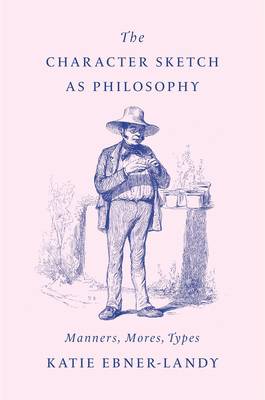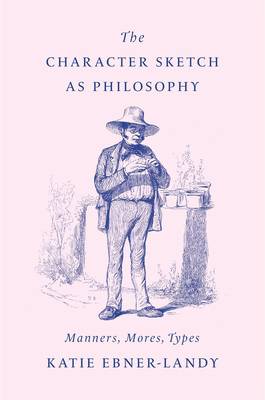
- Retrait gratuit dans votre magasin Club
- 7.000.000 titres dans notre catalogue
- Payer en toute sécurité
- Toujours un magasin près de chez vous
- Retrait gratuit dans votre magasin Club
- 7.000.0000 titres dans notre catalogue
- Payer en toute sécurité
- Toujours un magasin près de chez vous
63,45 €
+ 126 points
Description
An insightful exploration of the moral and political power of the character sketch in early modern Europe--and the implications for our own relationship to this genre today.
In the fourth century BCE, the philosopher Theophrastus, a student of Aristotle, composed thirty character sketches depicting ordinary Athenian vices: idle chatter, bad timing, cowardice, shamelessness, and superstition, among others. Centuries later, this enigmatic text--known as the Characters--was feverishly translated and imitated by early modern Europeans convinced of its moral and political importance. Tracing this resurgence of the Theophrastan tradition, Katie Ebner-Landy sheds new light on the role of the character sketch as a philosophical tool. Ebner-Landy shows that the original Characters is best understood as a work of political philosophy, designed to urge Athenians toward civic virtue. It is this quality that made the text so resonant in early modern Europe, where the character sketch again served as a means of encouraging ethical behavior and cultivating political knowledge. During the English Civil War, for example, the character sketch was used to diagnose new political types such as the Roundhead and the Cavalier. By the era of the Enlightenment, however, moral philosophy's long association with the character sketch began to break down. A different approach to philosophy took hold, one that spurned literary descriptions of manners, mores, and types and instead emphasized the principles underlying knowledge itself. This shift, in turn, helped to drive a broader separation between literature and philosophy. A revealing intellectual history, The Character Sketch as Philosophy also encourages us to consider what literary description might contribute to ethics and political thought today--and to think critically about the kinds of character sketches on which we still rely, from the snob to the mansplainer.Spécifications
Parties prenantes
- Auteur(s) :
- Editeur:
Contenu
- Nombre de pages :
- 408
- Langue:
- Anglais
Caractéristiques
- EAN:
- 9780674294127
- Date de parution :
- 21-10-25
- Format:
- Livre relié
- Format numérique:
- Genaaid
- Dimensions :
- 156 mm x 235 mm
- Poids :
- 794 g

Les avis
Nous publions uniquement les avis qui respectent les conditions requises. Consultez nos conditions pour les avis.






